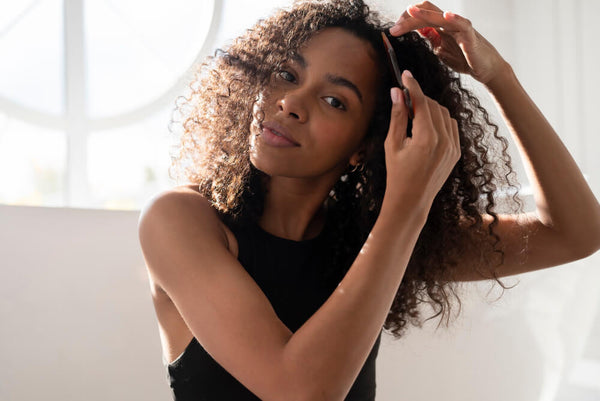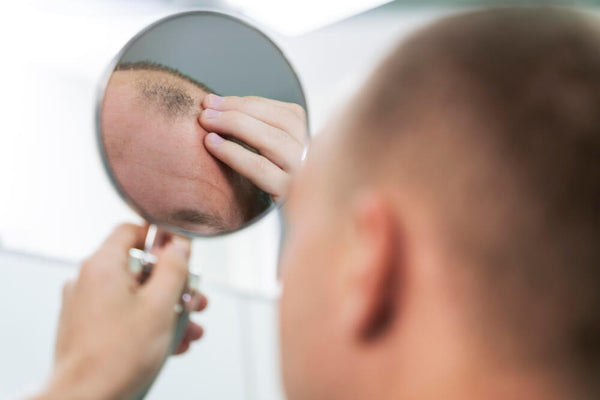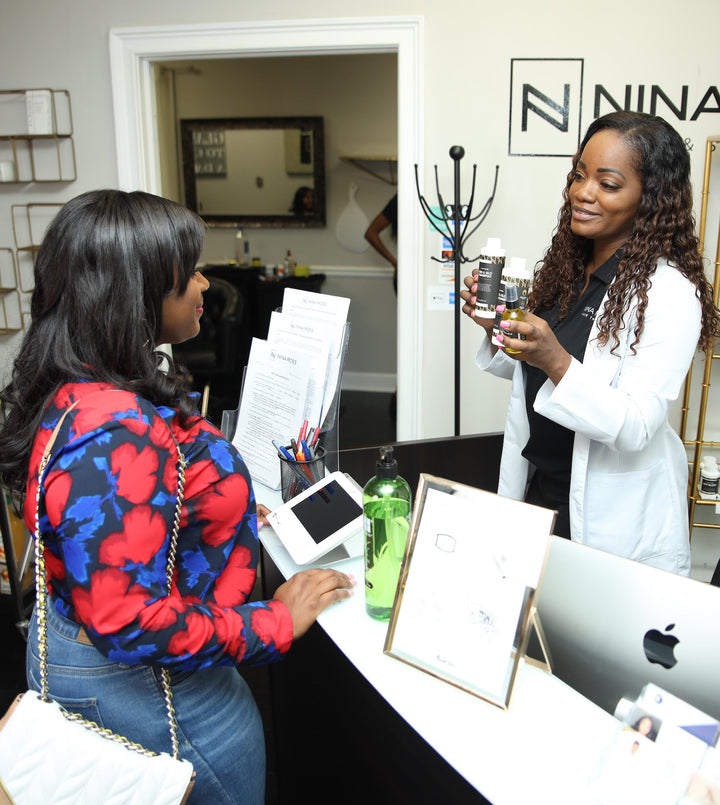I'll never forget when Maya, a 26-year-old teacher, sat in my Buckhead clinic crying. "I'm too young for this," she kept saying, pointing to her widening part. She'd been to two doctors who told her the same thing: "It's genetic, try minoxidil." But her mother and grandmother had full heads of hair well into their 60s. Something wasn't adding up.
If you're in your 20s and watching your hair thin, you're not alone—and you're definitely not too young. What most doctors dismiss as "early genetic hair loss" is often something much more complex, especially for Black women. Let's uncover what's really happening.
The 5 Reasons Your Hair is Thinning That Have Nothing to Do With Genetics
1. The PCOS Connection They Never Mention
Polycystic Ovary Syndrome affects 1 in 10 women, and hair thinning is one of its earliest signs. When your androgens (male hormones) are too high, they slowly miniaturize your follicles. The kicker? Many women with PCOS don't get diagnosed until they try to have children years later.
2. The Birth Control Backlash
That pill you started for acne or period regulation? It could be draining your body of B vitamins, zinc, and magnesium—all crucial for hair growth. And when you stop taking it? The hormonal shift can trigger massive shedding.
3. The "Perfect Storm" of Stress
You're building your career, maybe in grad school, dealing with relationships—your 20s are stressful. Chronic stress keeps cortisol elevated, which directly attacks your hair follicles. I've seen more women in their 20s with stress-related hair loss than ever before.
4. The Hidden Hunger
That "healthy" vegan or gluten-free diet might be missing key nutrients. Iron deficiency is epidemic among young women, and you can have "normal" hemoglobin but critically low ferritin (your hair's iron savings account).
5. The Autoimmune Time Bomb
Conditions like Hashimoto's thyroiditis often show up in your 20s with hair loss as the first symptom. Your thyroid levels might test "normal" while your body is actively attacking your thyroid—and your hair.
Why "Just Use Rogaine" Isn't Enough
Minoxidil might grow some hair, but it does nothing to address why you're losing hair in the first place. It's like mopping up water from an overflowing sink without turning off the tap.
If your hair loss is being driven by gut inflammation, no amount of topical treatment will fix it. If you have early CCCA (the scarring alopecia common in Black women), minoxidil can't stop the scarring process.
Our Approach: Finding Your Root Cause
When women in their 20s come to our clinic, we become detectives. We look beyond the surface and ask questions most doctors don't:
"How are your periods, really?"
"What's your stress like at work?"
"Have you noticed any digestive issues?"
"What medications or supplements are you taking?"
Then we run the right tests like a comprehensive hormone panels (not just basic thyroid), ferritin and full iron studies, vitamin D and B vitamin levels and some inflammation markers.
What Actually Works for Young Women
For Hormonal Issues:
We might use DHT-blocking supplements instead of harsh pharmaceuticals, combined with dietary changes to balance blood sugar.
For Nutrient Deficiencies:
We create targeted medical-grade supplement protocols based on your actual lab results, not guesswork.
For Inflammation:
We address gut health and use scalp treatments to calm inflammation before it causes permanent damage.
For Early Scarring:
We're aggressive with PRP and exosome therapy because in your 20s, we can often stop CCCA before it causes permanent loss.
What You Can Start Doing Today
While we're running tests, here's what actually helps:
-
Wash weekly—buildup fuels inflammation
-
Get your ferritin checked—demand the test from your doctor
-
Track your cycle—irregular periods are a red flag
-
Reduce tension—loosen those ponytails and braids
-
Eat iron-rich foods with vitamin C to enhance absorption
The Window of Opportunity
Here's what most young women don't realize: the hair loss you're experiencing in your 20s is often highly treatable if caught early. The follicles aren't dead—they're just struggling. But wait too long, and the damage can become permanent.
Ready to Get Real Answers?
If you're in your 20s and watching your hair thin, don't let anyone tell you it's "just genetics" or "no big deal." Book your Hair Therapy Evaluation with us today for just $99 and let's find your root cause and create a plan that actually works.














